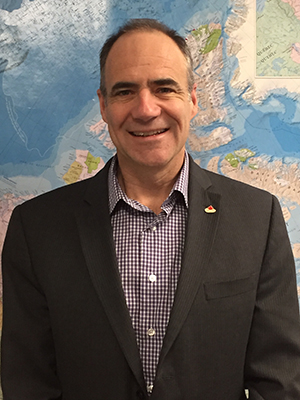New knowledge for the north and the world: a bright future for polar science in Canada
Author(s):
David J. Scott

The Arctic covers an immense area of Canada, about 40 percent of our territory. Scientists have been undertaking leading-edge research in the North for over two-thirds of our country’s lifetime and our polar researchers have a distinguished international reputation. Despite these efforts, the Arctic remains one of the least understood and most rapidly changing regions of planet. Those changes have repercussions around the globe, as arctic ice and rising temperatures influence the global climate through atmospheric and ocean currents. Here at home, the more than 100,000 Canadians who live in the north are feeling the effects now: shorter ice-travel seasons, stability of roads and buildings undermined by thawing permafrost, changes in the wildlife many depend on for food, and more. There is an urgent need to understand how the Arctic is changing — and how we should respond.
Polar Knowledge Canada (POLAR) is a federal government agency that is working with northerners, Indigenous communities, the Canadian polar science community, and international researchers to meeting the challenge head on. Established in 2015, POLAR delivers a pan-northern science and technology program, a knowledge mobilization and engagement function, and is operating the Canadian High Arctic Research Station (CHARS) campus in Cambridge Bay, Nunavut.
The CHARS campus includes laboratories, generous public space, accommodation for visiting researchers, and an equipment storage and maintenance building. Through its science and technology program, POLAR funds research across the North. The program’s current priorities include: alternative and renewable energy for the north; baseline environmental monitoring to prepare for northern sustainability; predicting impacts of changing ice, permafrost and snow conditions on shipping, infrastructure, and communities; and improving design, construction and maintenance of northern built infrastructure. These priorities will be reassessed every five years, with the next revision in 2019, in order to keep the program at the forefront of changing northern knowledge creation needs.
While Canadian researchers have been studying the Arctic for just over a century, Indigenous people have been building practical knowledge of their homeland for millennia. Their expertise, passed down through generations and constantly adapted as conditions change, is a valuable resource that complements and strengthens scientific research. Respectful inclusion of indigenous knowledge with science provides a powerful, more comprehensive way of knowing.
One example that demonstrates the benefits of combining science and indigenous knowledge is the SmartICE project, funded by POLAR in Pond Inlet, Nunavut.
SmartICE, spearheaded in Nain Labrador by geographer Trevor Bell of Memorial University of Newfoundland, and operated in Pond Inlet by ice expert Andrew Arreak, is developing a sea-ice monitoring and information-sharing system that blends Inuit knowledge with technology to improve travel safety on sea ice. Thickness sensors, placed in the ice along routes that hunters have identified as potentially unsafe, send measurements to a website where they can be retrieved locally. Sensors have also been mounted on a qamutiik (sled) to take thickness measurements while travelling. The technology is effective and responds to a need defined by northerners.
SmartICE and similar projects are on the leading edge of a new trend in northern research that, over the coming years, will see more and more indigenous people participating and driving research at all levels. They will be the ones asking the questions, developing and advancing the projects, blending scientific and indigenous knowledge– and finding the answers they need.
POLAR is supporting this effort in a number of ways: by supporting Actua in holding youth science camps across the North to awaken an interest in science in young northerners; helping promote science and technology in northern communities; supporting educational institutions such as the Nunavut Arctic College environmental technology program; and offering summer student jobs in Cambridge Bay. POLAR also administers the Northern Scientific Training Program, which supports early career researchers enrolled in graduate programs.
The Arctic is immense, remote and complex, and that makes doing research of any kind challenging and costly. Cooperation is essential: most Arctic science is only possible because researchers work together, combining their resources and coordinating logistics. The CHARS campus will be a new hub for science and technology research in Canada’s Arctic, and it is already enabling partnerships and enhancing collaboration. Researchers from around the world are showing strong interest in collaborating with Canadians, learning more about Indigenous knowledge, and working with northerners. They’re excited about the possibilities that the CHARS research campus and POLAR’s programs offer.
When the CHARS campus opens in Cambridge Bay, it will add a state-of-the-art science facility and a research program that engages Northerners in cutting-edge science and technology to the network of existing northern infrastructure aimed at serving the North, Canada, and the world. The CHARS campus will facilitate the gathering and exchange of knowledge in the north, by the north, for the north, as well as for the international community.
More on the Author(s)
David J. Scott
Polar Knowledge Canada (POLAR)
President and CEO

